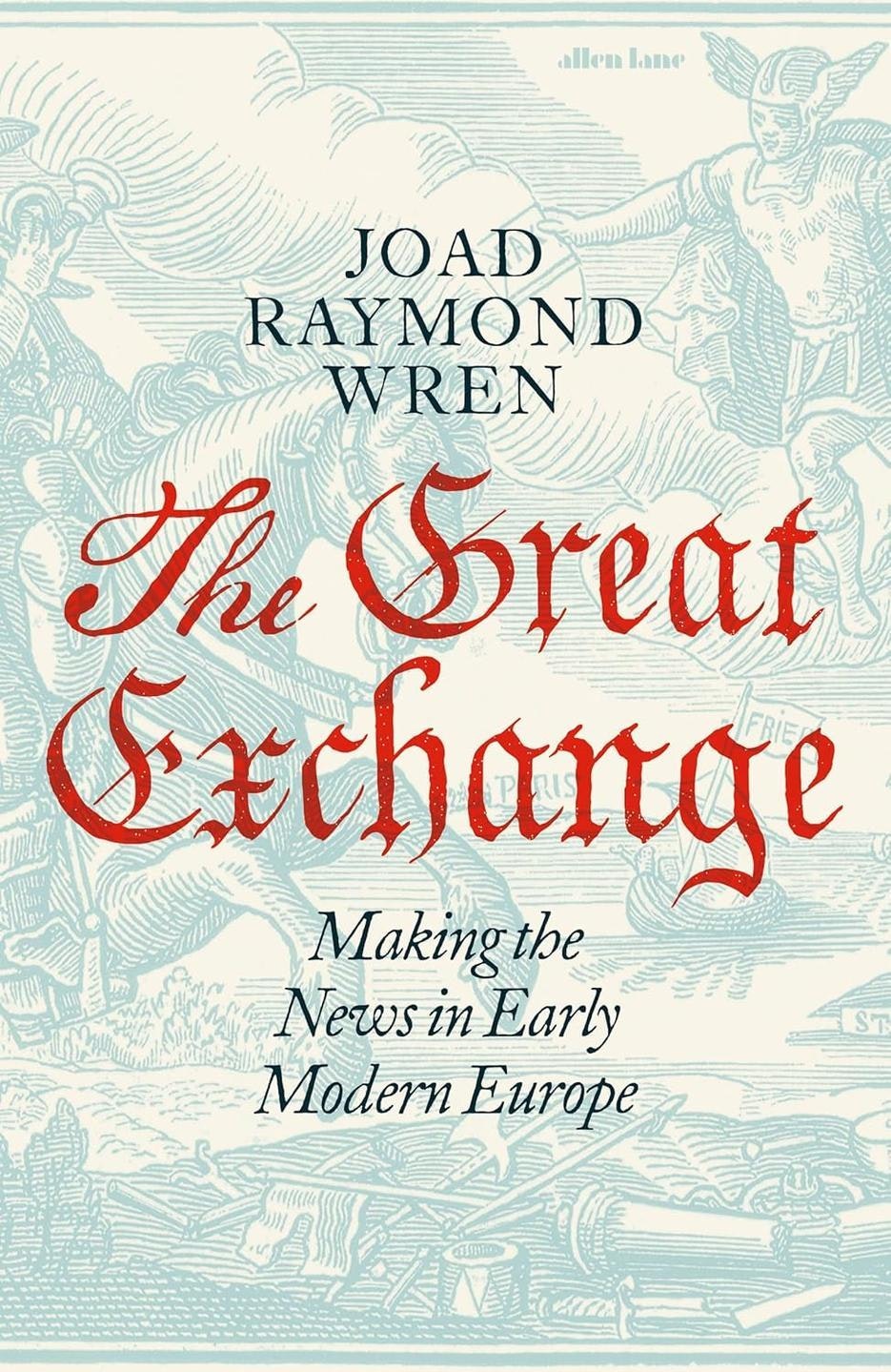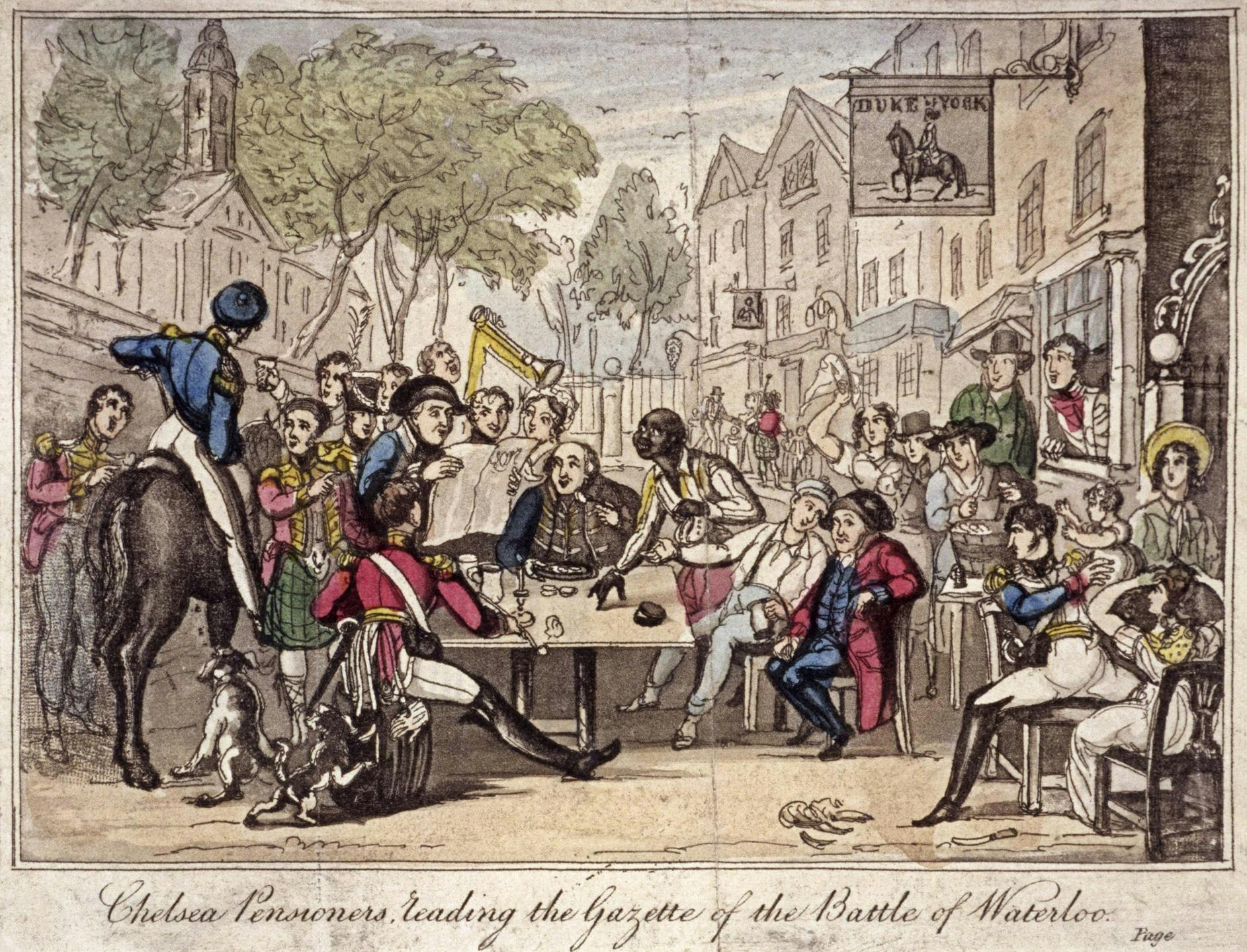This article is taken from the August-September 2025 issue of The Critic. To get the full magazine why not subscribe? Right now we’re offering five issues for just £25.
Joad Raymond Wren does not like press barons. This is his term for proprietors of newspapers and magazines, even though it only applies in Britain and even there only to a tiny minority of such proprietors. In his view, something went terribly wrong with “the ideal of a free press” in the mid-19th century when the “international flow of news” was “privatised” and ownership concentrated “in the hands of a few”. For Wren, “economics have always constituted a mode of soft or indirect censorship”.

These obiter dicta come at the end of The Great Exchange, a splendid survey of news in early modern Europe and beyond. In exhaustive detail, Wren describes the vast news network that traversed the Continent for roughly four centuries, from 1400 to 1800.
Thousands of individuals participated in this network: from merchants, diplomats and “intelligencers” (spies) to news-writers, translators and printers. Monarchs and their ministers sought to control the flow and exchange of information, but with very limited success. The network was simply too multifarious, its ownership too dispersed and the appetite for news too voracious for states to police them.
What makes Wren’s critique of the later “privatisation” of news so puzzling, though, is that this early modern network is a textbook example of what Hayek calls a “spontaneous order”, created by the free interplay of market forces without conscious human design. It seems perverse for an historian who (to judge from his warnings about fake news, nationalism, Brexit, etc.) hails from the Left to lament the evolution of an information economy that primarily served the needs of elites into one that catered for the masses.
By an unconscious but delicious irony, in the acknowledgements the author pays tribute to the Leverhulme Foundation for a research grant. Yet Lord Leverhulme, the philanthropist to whom he is ultimately beholden, was (along with his many other businesses that were later consolidated into Unilever) the proprietor of United Newspapers. In other words: Professor Wren’s admirable book owes its existence in part to a press baron.
None of this detracts from the value of this cornucopia of news history. We learn, for example, how the paragraph, created in late medieval Italy by reportisti to make their avvisi more digestible, segued into the news item, the basic unit of all media since. Or how the broadsheet newspaper emerged in the 18th century as a more economical use of paper than the earlier quarto format because it could be printed in multiple columns.
One angle that fascinated me was how differently the press developed on the two sides of the Channel. In France, Cardinal Richelieu created one model for the newspaper by granting the Gazette de France a monopoly of news in 1631. Its editor, Théophraste Renaudot, was the first to define the difference between the work of the historian and his own, more ephemeral, trade: “History is the narrative of things that have happened; the Gazette only the noise (le bruit) that circulates,” he wrote. “The first is required always to tell the truth. The second does enough if it prevents lies, and does not lie even if it publishes false news that has been given to it as true.”
Evidently the Gazette lived up to its editor’s aspiration to deliver the first, necessarily imperfect, draft of history. It endured for nearly three centuries, surviving the ancien régime as the voice of the Legitimists despite losing its privilege. But the paper’s official monopoly of news was also the reason why the French press could not, as in England, evolve into the role of the Fourth Estate, holding not only kings and bishops but even Parliament to account.
Not that the authorities in Britain did not try their best to tame the press. James I, one of our most highly educated monarchs, and Francis Bacon, surely our most intellectually distinguished Lord Chancellor, made strenuous efforts to do just that.
They failed, although after the Restoration Charles II imitated the French model by licensing the Oxford (later London) Gazette to be an official newspaper. But it proved impossible to put the genie of the free press back in the bottle, despite all the devices of state control, from pre-publication licensing (which ended in 1695) and legal sanctions to taxation.
Stamp duty on newspapers lasted until 1851, and the unpopularity of this “tax on knowledge” is the ultimate reason why we still have no VAT on papers or books. In modern times the BBC gave the state some control over news, but Reith resisted official propaganda and it too eventually lost its monopoly.

Wren dismisses the Whiggish narrative of the rise of the free press in Britain. In 1815, reports of the Battle of Waterloo still took from Sunday evening to Wednesday morning to reach London; it was first printed by the Courier that day. But only after an “extraordinary” edition of the government-authorised London Gazette confirmed the news on Thursday, did The Times and other papers report it.
The Post Office enjoyed a monopoly of foreign papers, which delayed (but did not prevent) their use as a news source. As Wren sees it, “In some respects foreign news was more controlled in London in 1815 than in 1615. Add to this stamp duty … and the threat of libel prosecution, and it will appear that, despite the lapse of pre-publication licensing in 1695, the press was not free.”
But the criterion of a free press is not whether it is taxed — and certainly not whether libel laws exist, as they do to this day. If that were so, then the emerging laws of privacy and blasphemy against Islam, plus self-censorship for fear of causing offence, would surely make the press less free in 2025 than in 1815.
As for access to international news: the problem today is not that it is filtered through the Post Office, but that ignorance of foreign languages and cultures has led to a decline in curiosity, even about the “near abroad”. Here Wren does have a point: the mass circulation press that emerged in the 19th century was focused on national and local, not international, news.
One of the most enjoyable chapters of Wren’s book is devoted to “Imagining News”. its impact on literature. The locus classicus is Ben Jonson’s play The Staple of News (1626), in which he satirises a news bureau, “this ridiculous Office of the Staple”, where we “perceive the tricke of alluring money to the Office, and there coozening the people”.
Jonson shared the belief, ubiquitous in Europe, that the gullible masses were at risk from too much news — not dissimilar from the present-day tendency to blame online media for the rise of populism. Emmanuel Macron was only the latest to claim (on a state visit to the UK, no less) that the British electorate had been “sold a lie” about Brexit as a solution to mass migration.
Though Shakespeare nowhere depicts the accelerating exchange of news in as much detail, he makes the most of its dramatic potential. “What news on the Rialto?” Shylock and Solanio ask in The Merchant of Venice, and the plot revolves around the interaction of commercial news and financial speculation on what modern merchants would call futures. In Venice, the Rialto Bridge was the place where news arrived and was disseminated, just as London had St Paul’s Walk and every other city its own equivalent.
For Shakespeare, news plays a transcendent part: his plays feature 111 letters, and his characters allude to many more. Wren shows how Othello and Macbeth are driven by reports whose unreliability heralds catastrophe. Shakespearean tragedy differs from that of the Ancient Greeks not least because of the irruption into the action of open-ended, often international, news that constantly demands interpretation.
Montaigne, too, makes an appearance in Wren’s pages, with his essay “Of a Defect in Our Policies”, which outlines a bureau d’adresse for the exchange and recording of news, including the storage of data. The aforementioned Renaudot picked up the idea and set up such an office in Paris before launching his Gazette.
Not to be outdone, London saw similar exchanges flourish during the Interregnum and Restoration periods. These projects had a utopian dimension: their originators “apparently grasped that they could make the world smaller through the acquisition and organisation of large data sets”.
Utopian, too, is the ambition to write a history of news, that most quicksilver of commodities and Wren has knowingly attempted the impossible. For all the unavoidable imperfections of any attempt to capture such an evanescent subject, however, The Great Exchange must be counted a triumphant success.











